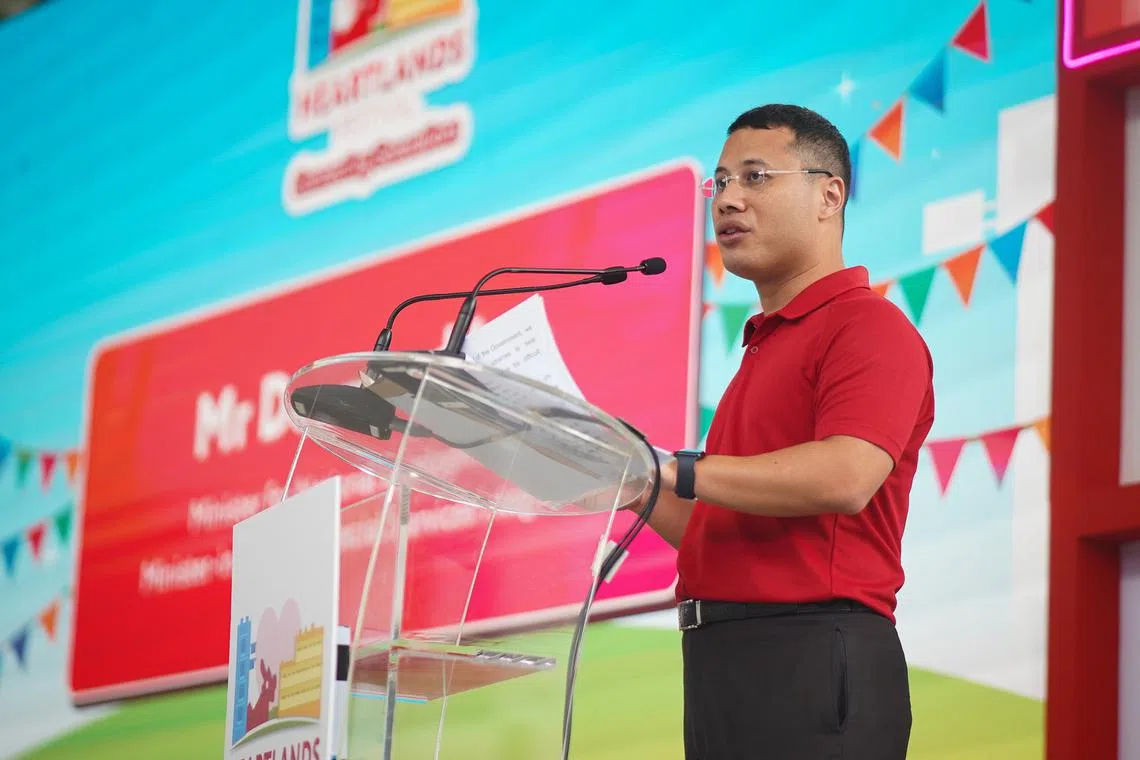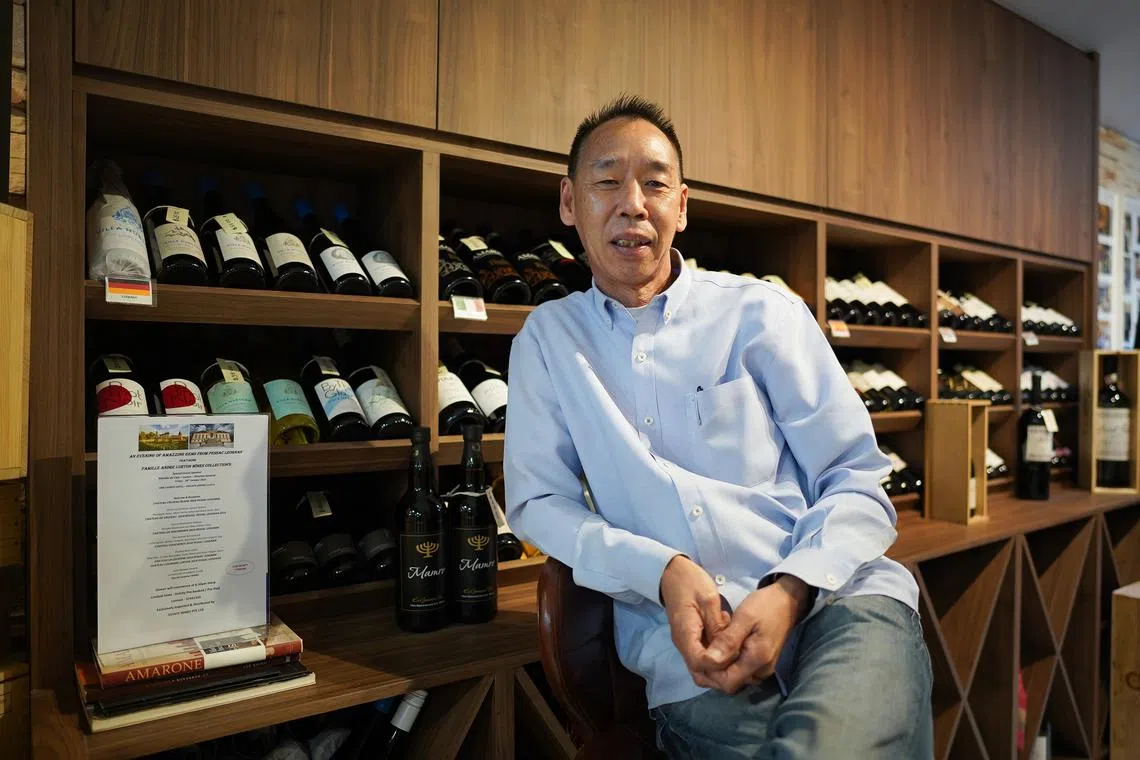HDB to offer short-term stay to shop tenants with expiring 30-year leases, updates tenancy guidelines
Sign up now: Get ST's newsletters delivered to your inbox

HDB will contact tenants with expiring leases well in advance to advise them on their options.
PHOTO: ST FILE
Follow topic:
SINGAPORE – Some 730 Housing Board heartland shop owners whose 30-year leases are about to expire will be allowed to extend them for at least a year, during which they can make new business plans or bid for a new tenancy.
They had bought the outlets in the 1990s before the economic downturn in 1998. The HDB, which has 15,200 shops here, has since leased shops for three years at a time.
It will contact tenants with expiring leases well in advance to advise them on their options, said National Development Minister Desmond Lee at the Heartlands Festival at Punggol on Saturday.
The shorter lease period helps the authorities to ensure that the trade mix in an area can continually be refreshed to meet the quickly changing needs of the community, he added.
Tenancy will be granted based on an updated set of guidelines that place greater emphasis on the value that prospective tenants can bring to a neighbourhood rather than the highest bid, said Mr Lee.
In updates to the price-quality method (PQM) of seeking new tenants, the HDB said it will cut the weighting given to the price offered to 40 per cent, placing a higher weighting of 60 per cent on the quality of the applicant’s proposal.
The affordability of goods and services will also be prioritised, especially for supermarkets, minimarts and coffee shops. Businesses with a strong local track record and heritage value will also be considered. “This will help us achieve more vibrant, inclusive and distinctive heartland shop precincts,” said Mr Lee.
“For instance, affordability may be included as an important criteria in our shop tenders, so that we ensure that food and other basic necessities continue to be affordable for our heartlanders and not allocate our shops just based on the highest rental bid offered.”
The announcements come after the results of the Heartlands Shops Study
Some 2,800 shop owners, residents and merchants’ associations were surveyed.
Seven in 10 residents said heartland shops provide more affordable goods and services and help to reduce the cost of living. Most also felt the shops are part of Singapore’s heritage.
Among the top eight trades expected to be relevant among heartland shops are eateries, healthcare, markets, salons and household care.

Minister for National Development Desmond Lee delivering his speech during the Heartland Festivals: Connecting Generations event held at Oasis Terraces in Punggol on Nov 19, 2022.
ST PHOTO: SYAMIL SAPARI
Businesses cited thinning profit margins amid strong competition from e-commerce sites, which typically offer lower prices. The majority of businesses have also yet to fully adopt digital tools.
Businesses also flagged rising rent as a major concern, especially for operators renting from owners of shops that were sold – roughly half the heartland shop population.
“This could arise from the rent-seeking behaviour of some sold-shop owners who do not operate a business themselves but rent out the shop fully,” said the report.
The HDB and EnterpriseSG urge businesses to go beyond digital solutions like payment apps to consider loyalty programmes, rewards and discount packages via apps.
Businesses should also collaborate to organise night markets or sales, which can attract patrons beyond those who live nearby.
Mr Yeo Hiang Meng, president of the Federation of Merchants’ Associations Singapore, said the HDB’s plan will cause shop owners who mainly sublet their space for rent to rethink their business plans in the light of updates to the PQM.
“Those who buy a shop and don’t operate it themselves might find it tough to re-tender,” he added.
“They don’t operate the shops, so when their lease ends, they will need to ask themselves what kind of business they hope to operate.”
He added that owners of shops used as traditional medicine halls and incense suppliers must transform to appeal to consumers, such as using e-commerce platforms or curating package deals to simplify the buying process.
Mr Richard Lee, 65, who runs wine shop Estate Wines Cellar in Oasis Terraces in Punggol, said a short-term lease of three years adds pressure to business owners due to the uncertainty over rental prices and whether they can remain in their spot in the long run.
“To start a shop like this incurs high costs like renovation and bringing in all the wine, which takes time to sell... A longer lease takes away the fear of having to move or whether rent will suddenly increase,” he noted.

Mr Richard Lee, who runs wine shop Estate Wines Cellar in Oasis Terraces in Punggol, said short-term leases add pressure to business owners.
ST PHOTO: SYAMIL SAPARI
He said his business, which opened in 2019, had its lease renewed for three more years, and it had benefited from rental cuts given to tide it over the pandemic.
He regularly holds wine-tasting sessions for the public and collaborates with nearby restaurants as a means of marketing and connecting with others who enjoy wine.
“When we have events, a lot of shoppers get curious about why there are so many people in this little shop. It’s a way to bring people in, mingle and build a community spirit,” he said.

